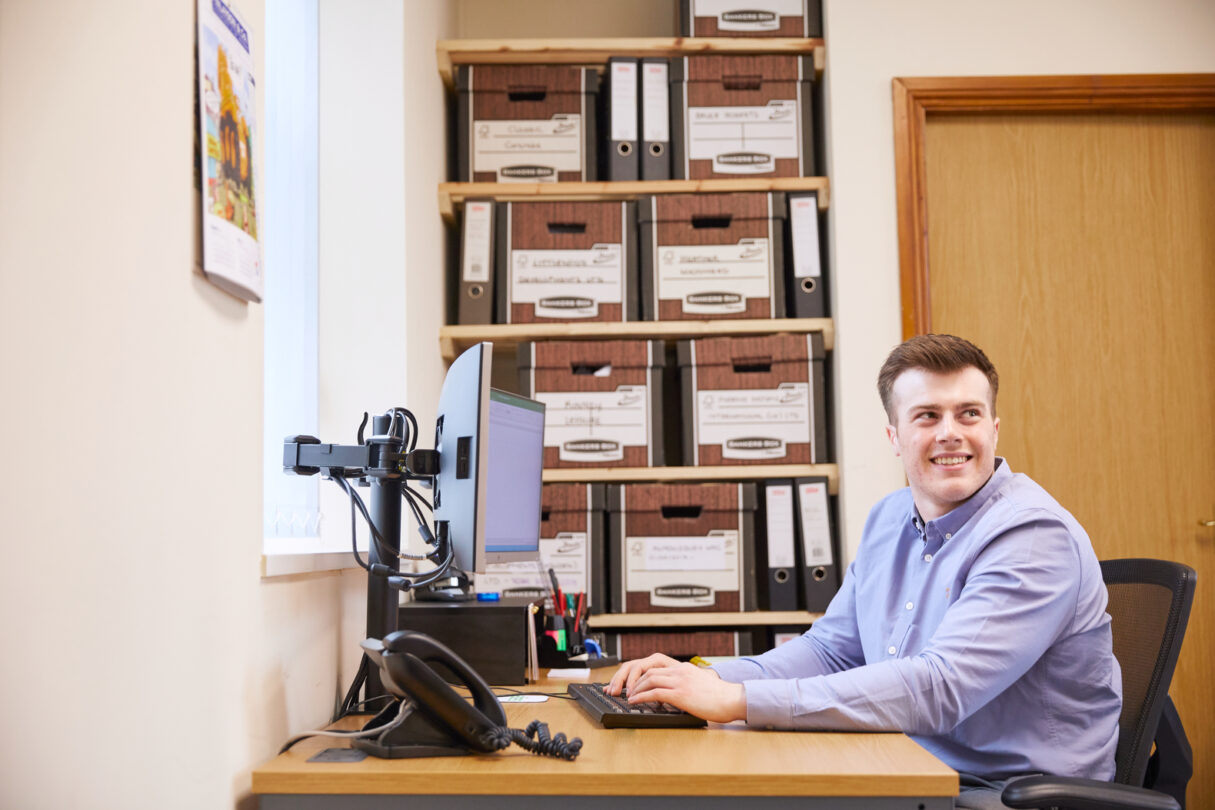How technology can help your practice in times of uncertainty
Discover how using technology can help to keep your accountancy practice and the businesses of your clients moving during the coronavirus disruption.

It’s hard to imagine what working life would have been like if the coronavirus disruption occurred a couple of decades ago. We’re fortunate that technology has delivered the power to work remotely – and therefore enforce social distancing – without sacrificing functionality.
Cloud computing, in particular, has been beneficial for many accountancy practices and businesses at this time. And if you aren’t using the cloud yet, there are still things that can be done.
This article will provide you with advice on how technology can help your practice to keep functioning in times of uncertainty.
Working in the cloud
Many accountants have already upgraded both their own and their clients to cloud accounting solutions, and you may have done the same. Little if any adjustment was therefore required when it came to working with social distancing and the home office front of mind.
Logging into cloud accounting solutions is just the same if you’re at home as it as when you’re in the office.
Most accountants and other businesses have discovered the benefits of cloud services such video conferencing, using the likes of Microsoft Teams.
Using this technology makes it possible to stay in contact with your colleagues and clients. Some accountants are even adopting video conferencing as part of their new client acquisition pipeline.
However, there are a number of cloud computing benefits that are worth highlighting:
Access from any device
You and your clients can access cloud accounting solutions from your tablets or mobile phones, provided there’s an app for them. This can be useful if there is only one laptop or PC in the home and it’s already in use for other purposes.
It also means you can be mobile when working – sitting on the sofa for an hour or two instead of behind a desk all day can help avoid the doldrums of social isolation.
Access via web browsers
Some cloud accounting solutions can be accessed via a web browser. Since even older computers can run modern web browsers reasonably well, this might mean you’re able to use an old laptop or PC just for the purposes of home working.
Alternatively, you could buy a cheap laptop if you don’t have access to one from the office.
This is good advice to pass on to clients, who might not have a great deal of computing equipment at their home beyond the technology they use for leisure.
Collaboration
Remember that cloud accounting software can be simultaneously accessed by multiple members of staff, again from any location.
This can make it easy to assign and complete work tasks, even among those who don’t ordinarily handle those jobs, when it becomes necessary to work more flexibly because of coronavirus disruption.
Lots of tasks can be done in the cloud
While you might already be subscribed to cloud accounting services, there are cloud apps for lots of things you might ordinarily do on a desktop computer in the office. Note-taking apps, for example, can make it easy to share information with your team.
Meanwhile, cloud storage can replace the need for an office network server. Similarly, there are cloud-based project management apps that can make team collaboration easy when working remotely.
Maximising the cloud’s power
Smart accountancy practices are not just using cloud technology to work today, but also learning from the experience for the future.
Although there’s little doubt that you will return to working at your office, the flexibility of cloud working can help your practice create even more powerful workflows.
But even now there’s more that you can do, if you’re not already.
Connecting to cloud accounting
Ensuring your client’s cloud accounting connects to your own solution means you’ll have instant access to their data. The benefits of this in the current locked-down environment are clear because there’s no need for your client to present you with the data, or for you to chase them to request it.
The ongoing benefits are clear too. You can easily look at your client’s financial data and warn them of any problems that may be arising, such as those relating to poor cash flow.
Set up automated bank feeds
For both your practice and your clients, connecting your accounting software to the bank means the financial data is always at your fingertips.
Again, this provides a level of insight that’s vital during the current business disruption caused by coronavirus.
Incoming and outgoing payments can be tracked accurately, while the accounting software’s reporting tools can take the data and efficiently provide you with insights that will help you to be more effective.
Make use of automation
For you and your clients, reducing the amount of basic admin is vital. Key examples within the world of accounting are the automation of data entry by photographing or scanning invoices and other documents, and the automation of account reconciliation.
These can save weeks of work in an ordinary environment, but with the struggles of maintaining a business in these trying times, they can make an even more profound difference.
Creating cloud migration strategies
If you or your clients haven’t yet adopted cloud solutions, doing so during the coronavirus disruption may be tricky.
People’s thoughts are clearly going to be elsewhere, and even basic requirements such as one-to-one training may be harder (although not impossible – again, video conferencing tools could play a role here).
However, it’s possible to start work on a cloud migration plan, and to decide on a time when making a move might be feasible.
After all, the coronavirus outbreak has shown that business preparedness is key and you can no longer assume working practices will be straightforward in the immediate future.
You can begin reviewing existing tools and processes, for example. Employees can be asked for their thoughts. You can start reviewing your client lists to discover those who are more or less amenable to cloud working.
In terms of timing, immediately following year-end is typically best because there a reduced need to migrate existing accounting data to the cloud solution.
Again, this can be planned into the timeline for the migration strategy.
Working with legacy accounting apps
There’s older software, with no cloud capabilities, that some practices use via their office computers. This type of software can still be used from home – although the way this is achieved isn’t ideal.
Remote desktop software lets you access a computer from outside the office as if you’re sitting in front of it.
However, remote desktop apps can be slow. Even on very fast internet connections, it’s likely you may see the mouse cursor lag behind where you want it to be. This can make for a frustrating experience, especially if you want to access your files quickly.
Another issue that you may run into is around security – you could find your business is targeted by fraudsters because you’re using a remote desktop solution.
Creating a springboard for better client relationships
The knowledge you’ve gained of working during the coronavirus disruption might not be widespread.
You may already be advising clients on government financial support, that’s available to them. But you might also want to take on a makeshift technical support role and use the opportunity to strengthen your relationship through advice about carrying on business as usual while maintaining lockdown and social distancing rules.
Businesses have always turned to their accountant in times of need, and now is no different. Every business difficulty presents an opportunity for you to show your value, and to create new and meaningful relationships.
In the advent of the coronavirus disruption and the fact that community groups of all kinds have never been closer, your role as an accountant is central to most business communities.
Coronavirus and your business
We’ve gathered information and resources to help navigate this situation. You can also find out about support for Sage solutions, including enabling home working.






